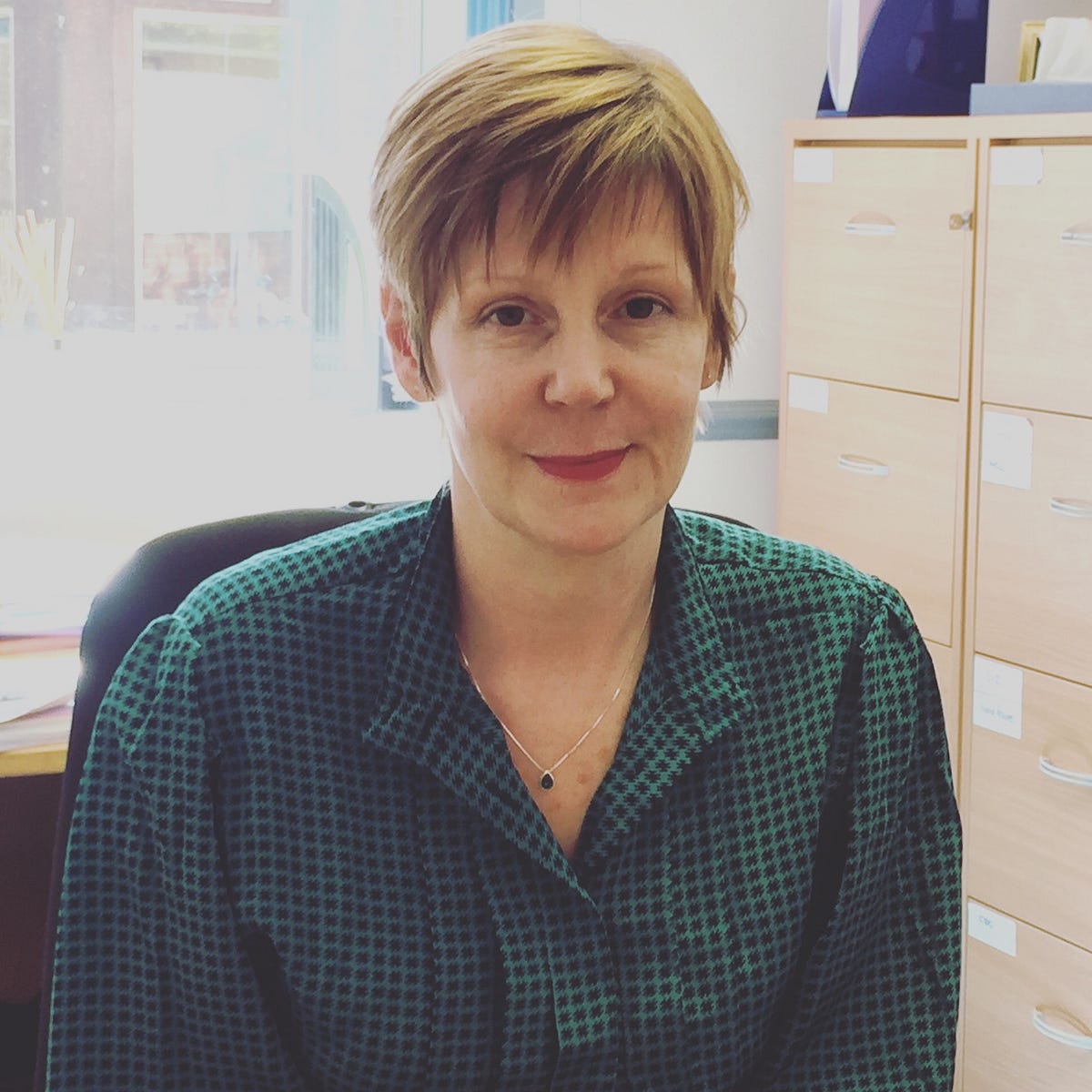What I do: Maria Kane
Leading Barnet, Enfield and Haringey Mental Health NHS Trust


Tell us about your role and how you got into mental health
I’m the chief executive of Barnet, Enfield and Haringey Mental Health NHS Trust, or BEH for short. I’ve been here for about eight years. My role is to coordinate the resources we have, and those we are given, to make sure we develop services which meet the needs of our local population and support their mental health and wellbeing. I have been a volunteer or a trustee of mental health organisations for about 30 years, in part inspired by having friends and close family members with mental health problems. That was what made me want to go into mental health.
What do you find most rewarding about your job?
Every day I see staff who amaze me. They are kind, compassionate, empathise with patients, provide fantastic care, and they do this day in and day out. Even when resources are very tight or they are really busy, they put their patients first. I find that inspiring.
What do you find most challenging about your job?
It’s to do with how you manage a finite resource with what sometimes feels like an infinite need. We’re seeing huge increases in people who need mental health care and support, particularly in children and young people. There are rising levels of self-harm, anxiety, depression, bullying at school, which are often related to social media. We are seeing vast numbers of new people who need our services coming our way, and it is difficult meeting all those needs when resources are tight.
What do you think are the biggest challenges facing mental health in London?
Again I think it’s the number of young people who now need our services. We really need to reflect how we can engage with them better. For example, we aren’t using social media yet as much as we ought in helping people self-care and self-manage. We are trying to promote emotional resilience; getting people to feel able to talk about the still stigmatised subject of mental health. They’re big issues. Also we have an increasing elderly population, and dementia referrals have gone up nearly 40%, certainly in this part of London, and that is a big struggle for us.
What are the biggest mental health challenges within the local area?
We’ve got lots of challenges. Barnet, Enfield and Haringey has the majority of its services in three particularly diverse boroughs. Our challenge is to make sure we deal appropriately with all our communities whether it’s helping people whose first language isn’t English to access our services, or by providing culturally appropriate services. We also have an increasingly young population, some of whom have significant social challenges, and this results in mental healthcare needs going up.
What is an initiative your Trust carried out that you are particularly proud of?
We have loads of innovation happening in this Trust. Just recently we opened a pub for people with dementia, to really try and help them reconnect with some past memories. No alcohol was served, I can assure you!
We’ve just won the Health Service Journal Mental Health innovation award where we worked with some secondary schools on mental health awareness.
And, we have a brand new model of care which we call Live, Love, Do, where we support people in the areas they care most about. For example, we will help our patients find somewhere to Live; or help them get back to what they Love most which is making friends and seeing their family; or we will help them find a job or voluntary work so they can Do something meaningful. And, I am pleased to say little persuasion was needed to get all our staff and our services committed to delivering those three things.
What are the Trust’s aspirations for the future?
Over the next 10 years we want to reduce the enormous inequality that exists between people with a mental illness and those without an illness. If you have a serious mental health condition you are more likely to die between 10 and 15 years earlier than the healthy population average. That is one of the most horrifying inequalities I can think of. We would also really like to make sure we support mothers and young children within those crucial first 1000 days in a child’s life so they feel really safe and secure and have the best life chances possible. The attachment between child and parent or carer is crucial to their sense of self and wellbeing throughout their whole life.
You have a very challenging and rewarding job. What do you do personally to take care of your own mental health?
I like to go off to the sea side, I love to go and spend time down on the south coast in Hastings where I have some really good friends. I enjoy going to live music events too. I also have two children who are very clear about what their priorities are, i.e. themselves, and they provide the contrast to my working life. So I suppose a change is as good as a rest.
Find out more about Barnet, Enfield and Haringey Mental Health NHS Trust by visiting their website. You can follow them on twitter here too.